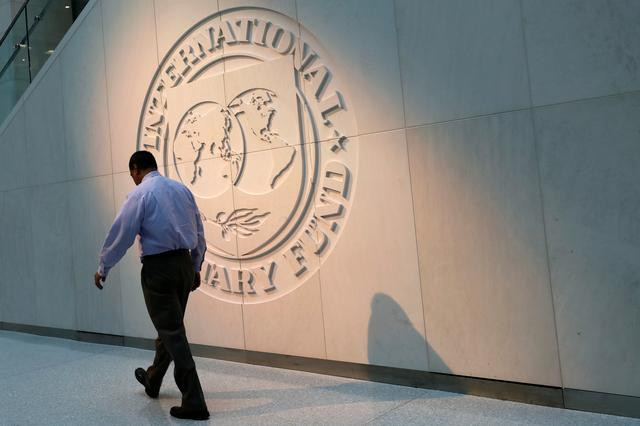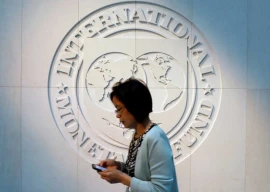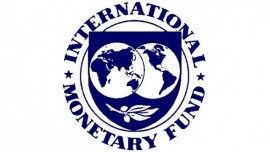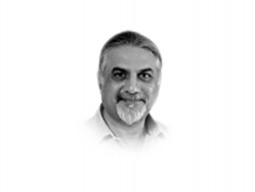
The talks between the government and the International Monetary Fund (IMF) for the revival of the bailout package are moving at a snail’s pace as the economic managers are still waiting for the ‘big nod’ from Prime Minister Shehbaz Sharif which is crucial to bridging differences with the fund.
Due to indecisiveness of the political leadership, Finance Minister Miftah Ismail, who was originally scheduled to leave for Doha on Sunday, will now go on Monday. Without political commitments for the next fiscal year, talks would remain inconclusive, said sources.
However, Minister of State for Finance Dr Ayisha Pasha is scheduled to fly to Doha on Sunday for the final round.
The economic managers are still waiting for the ‘big nod’ from Prime Minister Shehbaz Sharif which is crucial to bridging the differences with the fund.
Senior members of the ruling party are hesitant in taking tough economic decisions without a clear support from the establishment. They are dropping clear hints that in the absence of no guarantees from the powers that be they are ready to call snap elections.
The IMF and the Pakistani authorities could not build consensus on the macroeconomic framework during the technical level of discussions that began from Wednesday, sources in Islamabad and Doha told The Express Tribune.
There are differences of opinion on the issues of budget deficit, revenue target, power subsidies’ withdrawal plan, rationalisation of expenditures and inflation and economic growth projections. The gaps in the projections can only be bridged once there is a clarity on the status of fuel subsidies and tax measures for the next fiscal year.
Read Talks with IMF begin in Doha
The talks are so far scheduled to continue till May 25, with the crucial final round starting from Monday.
“We are waiting for the big nod before going to Doha,” said Dr Ayisha Pasha, Minister of State for Finance.
She said that the finance ministry has prepared two scenarios; one being built on getting permission from the leadership to enforce difficult decisions, and the second is based on the assumption that no nod is received but there is a backup plan,” said Mrs Pasha.
She added the economic team will present both the scenarios to the IMF during policy level discussions.
“I would say that Pakistan and the IMF talks are moving forward,” said the minister of state. To a question about a delay in finalising the budgetary framework, Ayisha Pasha said that there would be a consensus on the framework once there is complete clarity on the outstanding issues, which would come after the ministers reach Doha.
Miftah Ismail was scheduled to leave for Doha from Karachi but he had to rush to Lahore on Saturday to once again convince the prime minister about the need of urgently taking pending decisions. Shehbaz Sharif and former president Asif Ali Zardari also met on Saturday to discuss the unfolding political and economic situation.
Last month, the finance minister had made a promise with the IMF top management that he would start withdrawing fuel subsidies from May 1. But like his predecessors -- former finance ministers Dr Hafeez Sheikh and Shaukat Tarin -- Ismail, too, is unable to fulfil his promise, further widening the trust deficit gap with the fund.
Read Govt agrees to implement IMF demands
The PML-N’s senior leader and Interior Minister Rana Sanaullah said on Saturday that if anyone stopped the government from performing its duties and suspected the party’s performance, then they will not take responsibility of the mess left behind by Imran Khan and instead consult the allies to call elections.
Maryam Nawaz, the vice president of the PML-N, also said that Nawaz Sharif and Shehbaz Sharif were reluctant to increase the prices of fuel and electricity because if the prices were increased, people may face hunger.
In case, Pakistan remains unable to get the IMF loan, it will also face problems in getting any assistance from Saudi Arabia, China and other nations, besides finding it difficult to retain foreign exchange reserves and stop the steep decline in the value of the rupee.
Former prime minister Imran Khan had capped the fuel prices at February 15 level for a period of four months, which now has tied the hands of the new government. Shehbaz Sharif is facing a choice to increase prices and face people’s wrath or keep giving subsidies and risk the country’s solvency.
However, the sources said that due to a delay in receiving approval from the political leadership, the finance ministry was finding it difficult to agree on a budget deficit figure that is directly dependent on any decision about electricity and fuel subsidies.
The sources said that there was also lack of clarity on the issue of required power tariff adjustments in the next fiscal year and the needed budgetary subsidies to bridge the gap.
There was still disagreement on the next year’s revenue collection target, as the IMF was demanding to fix it at Rs7.25 trillion while the FBR showed different scenarios ranging from Rs6.8 trillion to Rs7 trillion.
One of the reasons behind the disagreement was the projected revenue collection in the current fiscal year, which the FBR is now expecting around Rs5.8 trillion due to adverse impact of the nil taxes on fuel and about Rs75 billion projected shortfall due to a temporary ban on certain imports. The IMF sought further details of the Personal Income Tax proposals.
The determination of the FBR’s tax target will have direct bearing for the next fiscal year’s expenditures.

1730806656-0/BeFunky-collage-(23)1730806656-0-405x300.webp)





1730806490-0/New-Project-(2)1730806490-0-270x192.webp)
1730802981-0/Untitled-design-(53)1730802981-0-270x192.webp)

1730799445-0/Untitled-design-(52)1730799445-0-270x192.webp)
1730800230-0/Copy-of-Untitled-(5)1730800230-0-270x192.webp)







1730706072-0/Copy-of-Untitled-(2)1730706072-0-270x192.webp)
COMMENTS (4)
Comments are moderated and generally will be posted if they are on-topic and not abusive.
For more information, please see our Comments FAQ